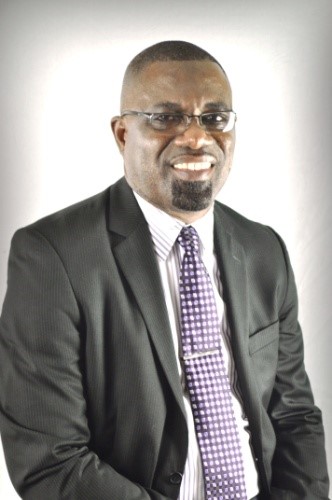
Director’s message – June 2019
From its inception, PANCAP recognised the significant role that faith leaders can play in the prevention of HIV, provision of care and support and reducing the stigma and discrimination that is often associated with HIV and AIDS. More recently, PANCAP has been working closely with faith leaders both at the regional and national level to support them to clearly define and execute their role.
During the first half of this year, PANCAP has been conducting a series of annual national level consultations under the Justice for All programme with faith leaders in Grenada, Guyana, Jamaica, St Kitts and Nevis, Suriname and the Republic of Trinidad and Tobago. Our next stop is Barbados. The need for faith leaders to engage in public campaigns to increase awareness of HIV has emerged as a common action among this community. Many of the faith leaders who attended the consultations for the first time lamented the fact that they were unaware of the UNAIDS 90-90-90 Targets by 2020 and the goal to end AIDS by 2030; Ninety (90%) of all people living with HIV should know their status; 90% of all those who are diagnosed HIV positive to be on sustained antiretroviral treatment (ART); and 90% of those on ART having an undetectable viral load. If this target is achieved, we can end AIDS because People living with HIV (PLHIV) would have improved quality of life and longevity, and virally suppressed PLHIV would not transmit the virus thereby significantly contributing to the prevention of new HIV infections. This message continues to resonate with faith leaders. Another message that is resonating with faith leaders is that stigma and discrimination are significant barriers to ending AIDS as they prevent persons from accessing prevention, treatment, care and support services.
Faith leaders have now clearly articulated their responsibility, particularly those who have been sensitised, to ensure that the information is shared among other faith leaders and their congregations. They have also taken responsibility for collaborating with their national AIDS programmes to support public awareness campaigns to remind people, especially adolescents and youth that we still live in a world of AIDS, and to provide them with correct information and education thus enabling them to assess their risk to HIV. They will continue to support HIV testing, care and support. Faith leaders also committed to advocating, on behalf of the National AIDS Programme, with policymakers for increased domestic resources for HIV, including for prevention. In one of the consultations, faith leaders, in recognising that religious leaders are not a homogeneous group, identified the need to explore the possibility of a ‘theological centering’ or areas of common agreements as they advance their response. Such centering is crucial as faith leaders confront stigma and discrimination that is also experienced by members of the LGBTI community who too require sexual and reproductive and HIV services.
I have assured faith leaders of PANCAP’s support through our Knowledge Management programme. They will be provided with information which can be accessed on our website, support for message design and facilitation of webinars, research articles, case studies, evidence, fact sheets and infographics tailored to their specific needs. I also reminded faith leaders that in an environment of limited resources, they do not necessarily need money to respond as information sharing can be incorporated into their existing programmes within and outside their place of worship. Technical support is also available to them through their national AIDS programmes and civil society organisations involved in the response to HIV and other social issues that make people vulnerable to HIV.
I am hopeful that the faith community’s response will be fully owned by faith leaders and that they will work collaboratively with their national AIDS programmes and civil society partners. The PANCAP Coordinating Unit, with support of the Global Fund, the 10th European Development Fund, Dr Edward Greene, PANCAP Advisor and the Policy and Strategy Working Group on Stigma and Discrimination, has given them wings and we will now let them fly and soar.
WHAT IS PANCAP?
PANCAP is a Caribbean regional partnership of governments, regional civil society organisations, regional institutions and organisations, bilateral and multilateral agencies and contributing donor partners established on 14 February 2001. PANCAP provides a structured and unified approach to the Caribbean’s response to the HIV epidemic, and coordinates the response through the Caribbean Regional Strategic Framework on HIV and AIDS to maximise efficient use of resources and increase impact, mobilise resources and build the capacity of partners.
What are the Global AIDS Strategy 2021–2026 targets and commitments?
If targets and commitments in the strategy are achieved:
- The number of people who newly acquire HIV will decrease from 1.7 million in 2019 to less than 370 000 by 2025
- The number of people dying from AIDS-related illnesses will decrease from 690 000 in 2019 to less than 250 000 in 2025.
- The goal of eliminating new HIV infections among children will see the number of new HIV infections drop from 150,000 in 2019 to less than 22,000 in 2025.
What are the 95-95-95 Targets for ending AIDS?
- 95% of People Living with HIV know their HIV status;
- 95% of people who know their status on treatment; and
- 95% of people on treatment with suppressed viral loads.
HELPFUL LINKS:
Global AIDS Strategy 2021–2026, End Inequalities, End AIDS
https://pancap.org/pancap-documents/global-aids-strategy-2021-2026-end-inequalities-end-aids/
Caribbean Regional Strategic Framework on HIV and AIDS (CRSF) 2019-2025
https://pancap.org/pancap-documents/caribbean-regional-strategic-framework-2019-2025/
